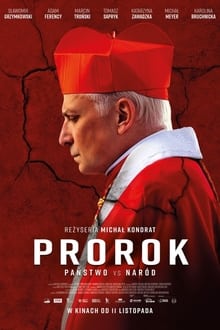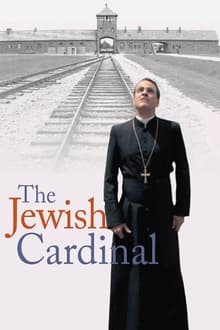Search

A documentary about the life of Pope John Paul II

The life of the pope John-Paul II, from his youth as a writer, actor, and athlete in war-torn occupied Poland to his election as Pope at the age of 58.

As Pope Pius XIII hangs between life and death in a coma, charming and sophisticated moderate English aristocrat Sir John Brannox is placed on the papal throne and adopts the name John Paul III. A sequel series to “The Young Pope.”

Tasked with surveilling a bishop who will become Pope John Paul II, an officer in communist-era Poland enters a downward spiral of obsession and despair.

Born in a village in Sudan, kidnapped by slavers, often beaten and abused, and later sold to Federico Marin, a Venetian merchant, Bakhita then came to Italy and became the nanny servant of Federico’s daughter, Aurora, who had lost her mother at birth. She is treated as an outcast by the peasants and the other servants due to her black skin and African background, but Bakhita is kind and generous to others. Bakhita gradually comes closer to God with the help of the kind village priest, and embraces the Catholic faith. She requests to join the order of Canossian sisters, but Marin doesn’t want to give her up as his servant, treating her almost as his property. This leads to a moving court case that raised an uproar which impacts Bakhita’s freedom and ultimate decision to become a nun. Pope John Paul II declared her a saint in the year 2000.

Cardinal Stefan Wyszynskiandapos;s story sets the stage for the dramatic rise of Pope John Paul II and the fall of communism in Europe. Who is this prophetic man who battled evil and saw a son of Poland rising?

The Jewish Cardinal tells the amazing true story of Jean-Marie Lustiger, the son of Polish-Jewish immigrants, who maintained his cultural identity as a Jew even after converting to Catholicism at a young age, and later joining the priesthood. Quickly rising within the ranks of the Church, Lustiger was appointed Archbishop of Paris by Pope John Paul II―and found a new platform to celebrate his dual identity as a Catholic Jew, earning him both friends and enemies from either group. When Carmelite nuns settle down to build a convent within the cursed walls of Auschwitz, Lustiger finds himself a mediator between the two communities―and he may be forced, at last, to choose his side.